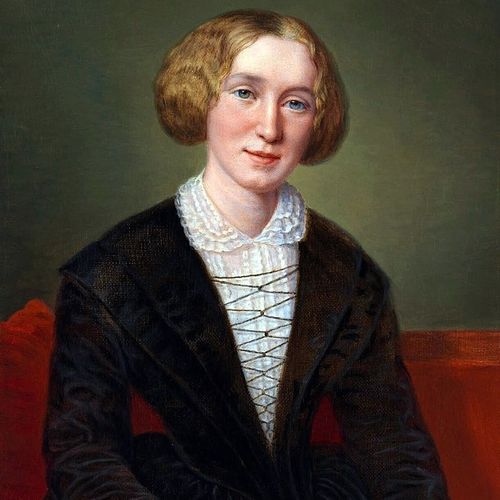Why is George Eliot Forgotten?
Jun 11, 2023 · 2 mins read
0
Share

In America, Jane Austen is the only name the majority can think of, when anyone brings up "Classics". For that matter, Hollywood makes sure to spit out one Pride and Prejudice adaptation every year. In a most well-read mood, a new version of Jane Eyre is also thrown in there.
Save
Share
Austen and the Brontës are invincibly among the top English wordsmiths in depicting romance mingled with a Victorian woman's struggle. Their stories serve not as the sources for understanding deeper philosophies, 19th-century politics, or complex psychologies.
Save
Share
George Eliot, however, must be one of the geniuses that are impossible to ignore, for anyone who cares more than a straw for Western literature. Virginia Woolf regarded Eliot's Middlemarch as "one of the few English novels written for grownup people".
Save
Share
George Eliot, thanks to her "horse-faced bluestocking" nature (nicely commented by her admirer Henry James), luckily received nourishment (education) for her talent, she studied German, translated David Strauss' Life of Jesus and The Essence of Christianity.
Save
Share
She was also an expert of Latin, Greek, and many European languages that are Latin-descendants. Her understanding in philosophy prompted another translation of Spinoza's Ethics. Her befriending of a real-life Jewish scholar impregnated Mordecai's story in Daniel Deronda.
Save
Share
Although an Anglican herself, she discussed Zionism in tremendous effort in Daniel Deronda, in 1876. Readers paid no attention to the Jewish element in this book, and the book only sold owing to Gwendolyn Harleth's side of the plot, and Eliot's enthralling penmanship.
Save
Share
Eliot's other novel Adam Bede reads but the master inspiration of Tess of the d'Urberville, with the latter eclipsing the former nowadays unreasonably. A conjecture maybe, but Hetty Sorrel's last name bears suspicious resemblance to Tess's baby named "Sorrow".
Save
Share
Eliot's motherly sympathy for the gullible, ignorant, and covetous Hetty Sorrel released her from death, and sent her to Australia. Hardy, on the other hand, didn't stop until Tess's head was severed for the same crime.
Save
Share
Men like deaths for beautiful women that married others: Madam Bovary, Anna Karenina--being fed arsenic, or thrown under the train. Or an acceptance to a slow, unintellectual, uninspiring, and perverted death like Dicken's Miss Havisham, for being left at the altar.
Save
Share
So go figure: why we overly portray Bovary and Karenina, and stay indifferent to Dorothea Brook, Dinah Morris, and Mirah Lapidoth. Don't let Hollywood do what they are the worst for--playing literature critic.
Save
Share
0